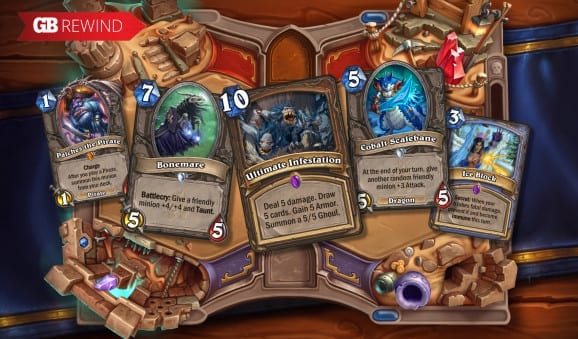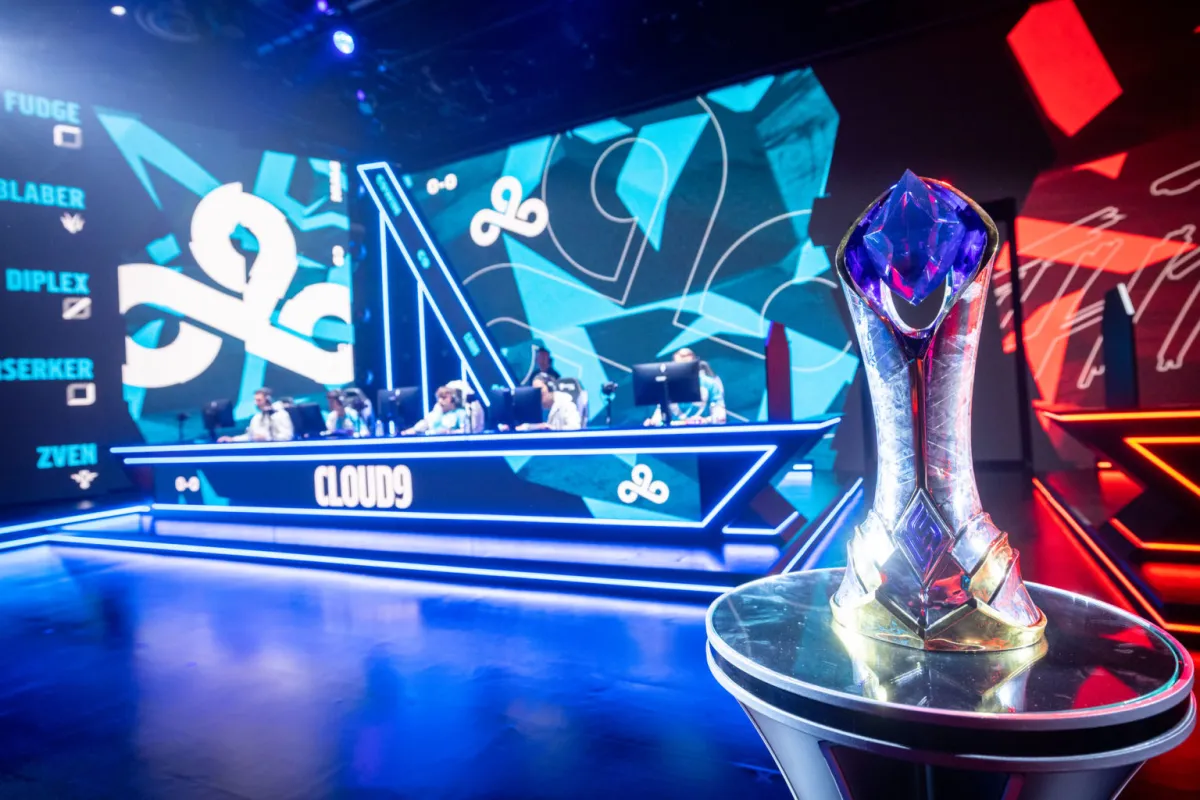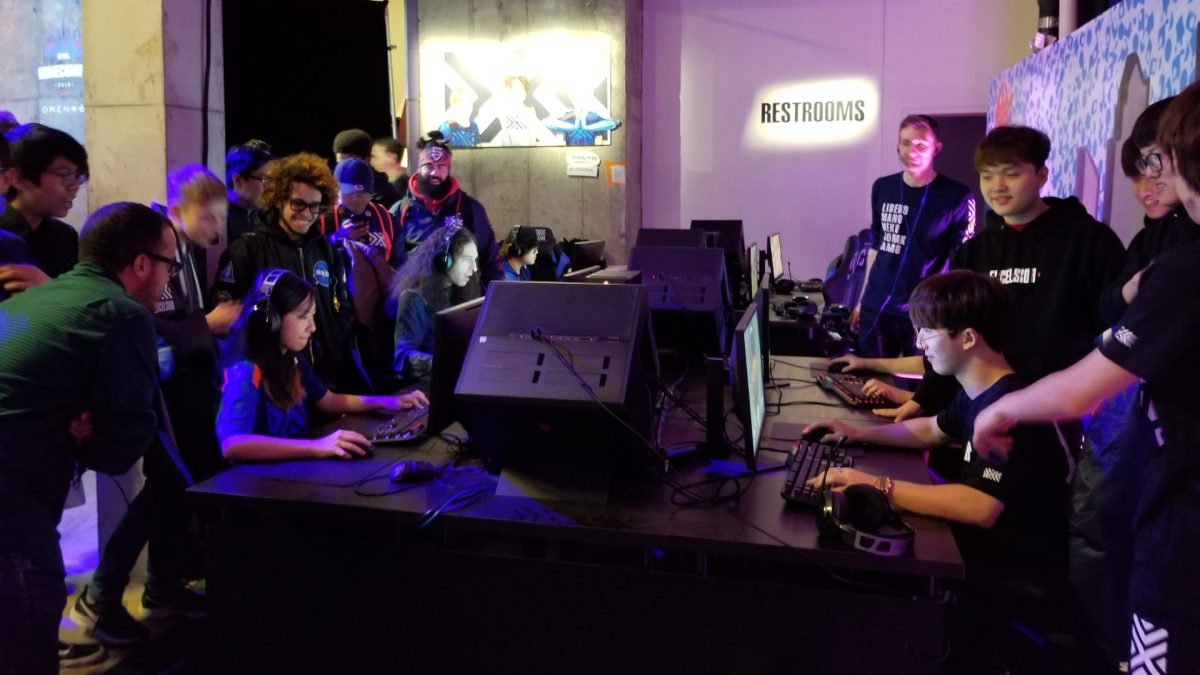Hearthstone – Blizzard’s answer to the question “What if we combined Warcraft with Magic: The Gathering and made it livelier and more animated?”
It is a game which has taken the Collectible Card Game (CCG) genre by storm since 2014. Hearthstone has amassed a legion of fans. Many are, naturally, already gamers who bought everything Blizzard had to sell. Others, meanwhile, are non-Blizzard fans who were hooked by the casual-friendly approach and fairly manageable difficulty curve. It’s free-to-play, after all.

Is Hearthstone Pay-to-Win?
Those three words — “free-to-play” — tend to be a point of contention, however, seeing as how one can purchase card decks, both via gold and real-world currency. Gold is fairly easy to come by. Casual play, Arena and Quests are some of the avenues available for one to start earning. When real money is put in the equation, though, things get a little complicated.
Some players feel that Hearthstone has a “pay-to-win” model, one where the rich and spend-happy have an advantage over those who are thrifty and averse to opening their wallets. A quick straw poll on the Blizzard forums garnered over 800 respondents, with 85% believing it was pay-to-win.
Hearthstone’s decks can give you a variety of cards with different rarities — from pissant Commons to shock-inducing Legendaries. The game’s crafting system also allows you to break down extra cards and, hopefully, turn them into Legendaries as well. The more cards you’ve got, the more arcane dust you can gain from disenchanting. Naturally, this means more chances to acquire those powerful Legendaries. While various cards can still be earned from regular play, freebies, or in-game gold, buying them outright with cash means a player has a leg-up on their competition.
It’s led to discussions on how much it actually costs you to succeed in the game and to continue playing and grabbing cards from certain expansions. This number rounds out to around $400 a year according to Polygon. Such claims will naturally generate heated conversation. If the game is free-to-play and yet people feel spending cash is the only way to “git gud,” can it ever be considered free to begin with?
The answer, actually, is yes — and for that, we’ll turn to the granddaddy of all card games, Magic: The Gathering.
The Magic Connection (part one)
Magic: The Gathering (MTG) popularized the genre in the ’90s and has become a favorite pastime of many a hobbyist. It is also one of the costliest due to the sheer amount of cash you’d have to spend in order to remain prominent in the competitive scene.
You can pick up starter decks and play casually with friends. You can read guides on how to play on a budget. Obviously, if you’d like more variety in your builds and see if new sets are worthwhile, then yes, you’ll want to spend. Instead of thinking of it as pay-to-win, players simply consider it an investment — no different from collecting mint baseball cards in previous decades, buying a video game console or upgrading your PC rig.
If you love to travel, you spend on plane tickets, boarding, and touring expenses. If you loved taking pictures, you buy yourself a camera. And if you love Magic: The Gathering, you purchase new sets and probably keep older ones to use, sell or trade with. Hobbies are seen as a meaningful way to pass the time and investing in them has always been considered reasonable.
“Pay-to-Compete”
Instead, players consider MTG as “pay-to-compete.” After all, like any competition or sport, if you really want to succeed in ranked play, ladders, and tourneys, you aren’t going to get far if you aren’t investing in your “game.” Look at athletic sports. Observe how professional athletes are constantly upgrading their gear to ensure they’re at the top of their sport. It’s just part of the game.
Let’s also not forget that some of the costliest and rarest cards have been banned from competitive play– Black Lotus, anyone? Oh, and here’s a couple of ladies throwing out $1,000 to fight experts, only to promptly lose. So yes, there’s a combination of strategy, luck, deck-building, investment and cost management thrown into the mix. You can’t simply say: “I paid money, now I will definitely win!”
Hearthstone follows the same formula
If you’re new, get a lay of the land first. If you’re climbing Hearthstone’s competitive ladder, that’s fine; start with cheaper and easy-to-use decks. Read up on guides on how to make gold and dust really quickly. Find the cheapest combos you can win with.
It’s also worth noting that if you delve into guides, you’ll notice that even cheaper decks do find success. For instance, you might find that Hearthpwn.com shows the Midrange Hunter deck only costs 1,200 arcane dust. That has an even win-rate of 54.7%. The Spiteful Druid build meanwhile costs 8,100 dust with a win rate of 60.3%. Compare this to several Odd Paladin decks with win rates ranging from 58% to 60.5% and costing 3,640 to 4,500 dust.
Looking at Hearthstonetopdecks.com, we see that the Warlock Zoo decks and Tempo Mage decks for the Witchwood expansion cost 5,280 and 5,680 dust respectively. These are fairly high-rated. Conversely, the Cubelock and Tempo Rogue sets are more costly at price points of 10,640 and 8,440 arcane dust. They don’t have as high a score as the previous two. As the meta changes, so too do the ratings for certain decks. This means another round of disenchanting and gathering resources in order to meet the demands.
Again though, this is only true if you do feel the need to invest more in your playing time. Or if you’d like to be on the top-end of the competitive scene for the game. If you want to just play casually or have a little viability in the lower end of the competition, you can simply stick with beginner guides. You don’t need to crunch numbers, delve into research, or min-max your chances of winning. Your main goal first and foremost is to “have fun” and “learn.”
The Kitchen Table vs. The Tournament Scene
It’s why Magic: The Gathering has remained a well-loved hobby for many of its players. You don’t necessarily need to be active in the tournament scene all the time. You could just have some games on the “kitchen table” with your friends without really being bothered by the need to spend further.
As you climb higher and higher on that ladder, though, and you truly want to turn your hobby into an investment then yes, you have that choice to spend. Just like in Magic: The Gathering, any other CCG, or any other sport for that matter. If you want to stay on top of the game, you’ll have to spend. No world champion for Counter-Strike or Halo ever attained stardom by playing with a potato monitor. That guy didn’t bring a crappy mouse to a stadium. He cannot pad his K/D consistently if his internet connection was terrible. Remember — money is not the only thing that matters. You still need the skill, experience, and luck of the draw to succeed.
Free-to-play? Yeah. Pay-to-compete in higher tiers of play? Sure.
Pay-to-win? Probably not.
This is a two-part series on Blizzard’s popular card game. Be sure to check the site tomorrow for the second installment.









